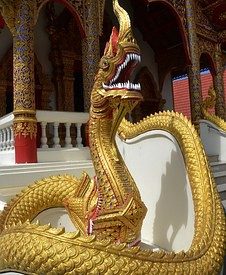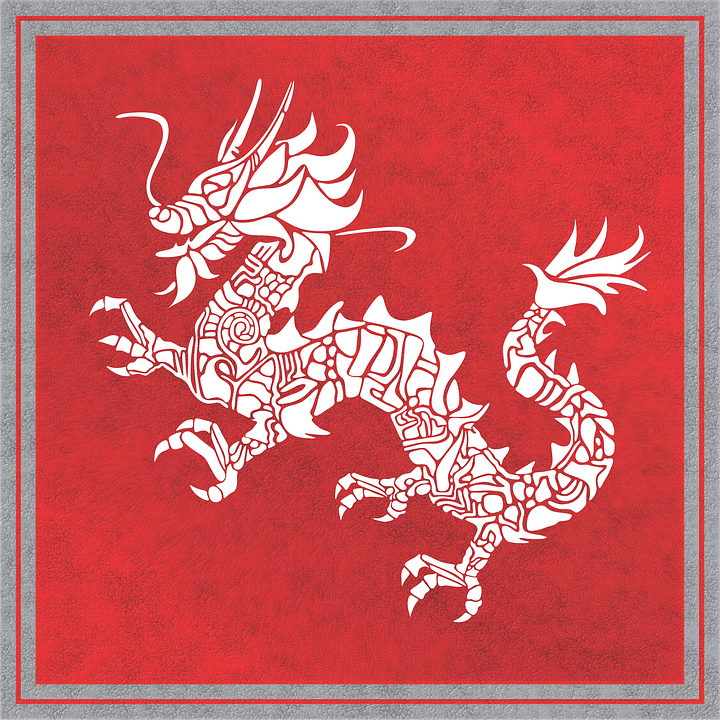
Tattoos are something most western cultures don?t think too much about. It has become so ingrained in western culture that if someone has a tattoo it is no longer a big deal, unless you are a part of an older generation (1950?s-1970?s). However, in China there is still controversy over tattoos. It seems China has always had mixed views on tattooing.
In traditional China tattoos were often thought of as a punishment. This punishment was/is called Ci Pei. People marked with this punishment were exiled and banished from society. Many stories from ancient China feature bandits who have full body tattoos. Traditionally tattoos were seen as defamation of the body in Chinese culture.
The most famous tattoo in Chinese history is the tattoo of Yueh Fei[1]. Yueh Fei was a general for the Song Dynasty in the south, but during a battle with the northern part of the dynasty one of his superiors betrayed him and went to the other side. Yueh Fei was so disheartened and bitter he stopped helping his superior and returned to his home. When he returned home his mother was shocked and appalled by his actions.
[1](Cultural China 10 01, 2013)
She explained to him that even if he didn?t agree with his superior he should still help and do what is best for his country. She told him to always support his country. As punishment his mother tattooed him with her sewing needle. The tattoo said something along the lines of ?serve your country with ultimate loyalty[2]?. He was marked, as a punishment so that he would always be reminded of what he had done and what he should do. The tattoo, while still a punishment, served as a reminder of a positive ideology.
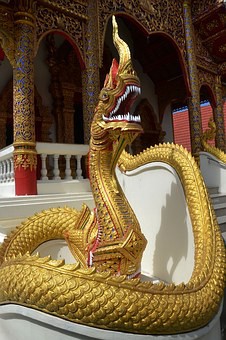
Though in these instances in ancient China tattoos were seen as a negative connotation, tattoos also had a positive role in ancient China. In Ancient China to have a small tattoo of a dragon meant that you were full of strength and virtue. This was of course, only true for men. Women with tattoos were still frowned upon. Women did have tattoos for various reason in ancient China.
The most notable reason that women had tattoos were to keep men away. The Du long were oppressed by their neighbors approximately 350 years ago during the Ming Dynasty. The Du long women were usually captured and brought back to enemy camps and used as slaves, because of this occurrence the women began to tattoo their faces so they could become ?ugly?. This was a safety precaution so they wouldn?t be as likely to be raped by enemies. Though the Du long is a minority group they are a big part of tattooing culture even today in contemporary China.
While the Du long are no longer threatened in a way where it would be necessary to tattoo their faces, the women of the Du long still carry out this tradition. The Du long women get tattooed around the age of 12 as a symbol of maturity and entrance into womanhood. Their tattoos are not frowned upon in China, but seen as a positive and traditional cultural aspect of their minority group. However, most of China isn?t as lucky when it comes to tattoo stereotypes.
[1](Cultural China 10 01, 2013)
Minorities have always been treated differently in China whether for better or for worse when it comes to tattoos they have a slight exemption. Anything with tradition behind it in China seems to also be overlooked no matter how negative the issue is. For the majority of Chinese citizens tattoos are still a delicate subject and one most Chinese get labeled for literally.
Most Chinese men with tattoos are seen as gangsters or ?players?. It depends on the tattoo the person has that makes them either a gangster or a player. Literally the Citizens of China who choose to have tattoos are labeled by these tattoos. They are truly branded. Men who have giant tattoos, tattoos mainly covering their whole body or full sleeves, tattoos of dragons, tigers or snakes are labeled gangsters. The reason for this is because there is an association with these types of big and expensive tattoos with the Triads[3].

Triads would have a lot of money to get expensive tattoos and multiple tattoos like these from deals and other underground business ventures. These people also tend to show off their tattoos more often by rolling up their sleeves or wearing wife-beaters.
Players or womanizers on the other hand usually have slightly smaller tattoos. They can still be of something considered as manly and royal in China such as a dragon, but can be anything. These medium-sized tattoos are usually located on the man?s shoulder, back, or arm and these men usually only have one tattoo like this. This tattoo is enough to tell the women ? I am a bad boy?, but not enough to say I?m dangerous like a beautiful poisonous dart frog out in nature. These tattoos often help Chinese men pick up women, hence why the man with this sort of tattoo will be labeled a ladies man. [4]
[1](Mark 04 08, 2010)
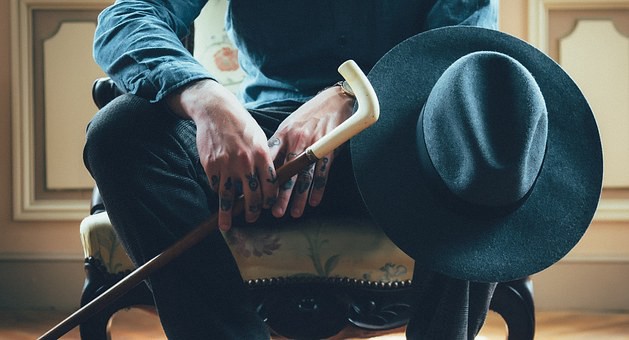
Small tattoos on men are seen as a form of rebellion. Usually this will be something the man did when he was a rebellious teen, but regrets now that he is older. Men aren?t the only ones in China being rebellious and getting tatted. More and more women in China are getting ink done.

Just like Chinese men who get tattoos women are also trying to make a statement with their ink. Women with feminine tattoos on their shoulders or ankles are seen as confident, independent, and hot. On the other hand if a Chinese woman has a small tattoo on her hand it means she is into style, fashion, hair, and nails.
More often than not a woman in China with hand tattoos are models for pedicures and nail products. Still there are more ?outrageous? tattoos such as the tramp stamp. Tramp stamps on Chinese women show that she cares about fashion and is a modern woman (like Shanghai baby) who isn?t afraid to show a little skin, okay maybe a lot of skin, but it?s called a tramp stamp for a reason. This tattoo represents an open mindedness that shows she is truly a progressive person. [5]
If a women has any more ink done such as a full sleeve or is tatted over most of her body then it is assumed that her boyfriend, husband, or significant other is a tattoo artist. She is not associated with the Triads like the men would be, but is seen as women who is treated like a piece of canvas by her significant other. However, any girl with a tattoo in China is still seen as a bad girl or tough girl by the majority of China.
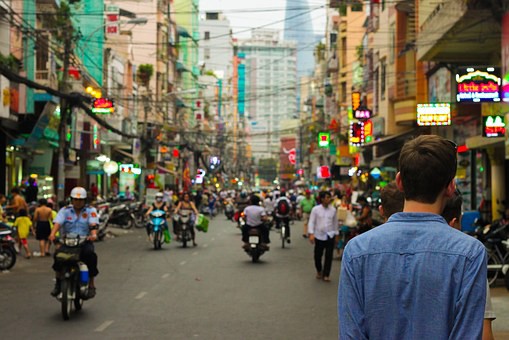
While China has come a long way in there perspective of getting inked there is still stigma attached with tattoos. The older generation still continues to look down on tattoos, but the new generation is embracing it at a pace growing as fast as China?s economy. Tattooing is become a form of plastic surgery and a way to cover up unnecessary scars. In popular Chinese culture tattoos are seen as a form of beautification. China is becoming more open to the west despite some difference and tattoos are becoming a growing trend.
?The first tattoo exhibition, held in 2002, attracted 11 tattoo studios and close to 600 people. The second exhibition in 2003, attracted 23 studios and several thousand visitors. There is a complicated history of tattooing in China, but the recent increase in interest, which coincides with the growth of the art on a global scale, requires a degree of clarity and organization. Authorities in the Chinese government are responding very positively to the community of tattoo artists and Kisen feels that the CATA will help everyone involved accurately define things.? [6] The government is encouraging tattoos and there has been speculation in China that this is so the people have another outlet for their frustrations. They can now express themselves through another outlet, instead of a protest like Tiananmen square they can express their emotions and views through tattoos or ?body art?.
[1](McCabe 09 01, 2012)
In the past the Chinese government would not have looked kindly upon tattoos. During Mao?s life it would have been seen as too ?individual? of an act. To express oneself in almost anyway or make yourself different and or unique from one another would have been seen as anti-communist and anti-government. However, now the CCP realizes that it must give some options for freedom of expression or the CCP will not exist because the people will revolt. It?s no wonder tattoos are booming in China, but some are patriotic as well.
During the Beijing Olympics 2008 some Chinese got the Olympic symbol for the Beijing Olympics tattooed on them. This was a symbol to remember a good time and show loyalty to their country. Over the past decade tattoo parlors have been popping up all over Beijing. While many foreigners come to get their tattoos done while visiting in Beijing Chinese are the ones mainly getting inked up in Beijing these days.[7]In fact tattoos are becoming more prevalent all across China. Exhibitions of tattoo art are becoming exceedingly popular and tattoo artists are seen as Picassos instead of street scum.
A famous tattoo artist, Dong Dong is chief tattoo artist at a Beijing shop and he stated at a recent convention that people in recent years have become more interested in tattoos and making up their own whereas previously Chinese people just got a tattoo to have one so they would be considered cool.[8] Tattoos are becoming much more than just a branding of status or a fun hobby. Tattoos are becoming a subculture to China and actually bringing communities closer together.
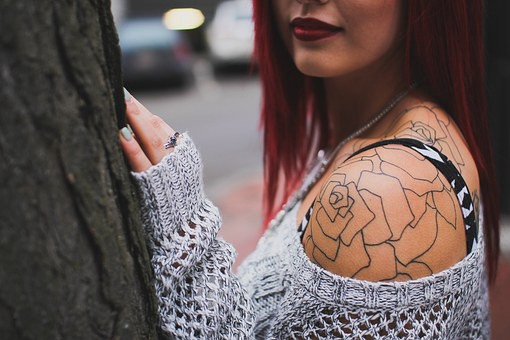
Tattoos are creating a culture and or environment in China that is the closest thing China has to freedom of expression and or speech. While tattoos make a person unique or an individual tattoos also bring communities together and people together. People share their ideas, their hopes, dreams, and pasts on their bodies. While the older generation may not understand the newer generation are the ones who are truly going to leave a mark on China. For better or for worse the taboo of tattoos is quickly fading away and a new era is beginning: The Era of Expression.
7(Levin 08 22, 2008)
8(Yuqing 06 16, 2007)
Bibliography
Cultural, China. Cultural China, ?http://traditions.cultural-china.com/en/14Traditions9157.html.” Last modified 10 01, 2013. Accessed October 4, 2013. http://traditions.cultural-china.com/en/14Traditions9157.html.
Hellmann, . Shanghai Expat, ?The Face of Modern China: The Undiscovered tattoo scene in Shanghai.? Last modified 04 17, 2012. Accessed December 4, 2013. http://www.shanghaiexpat.com/article/face-modern-china-undiscovered-tattoo-scene-shanghai-20803.html?page=0,2.
Levin, . The New York Times, ?Tattoos making a mark in China.? Last modified 08 22, 2008. Accessed November 4, 2013. http://www.nytimes.com/2008/08/24/sports/olympics/24tattoo.html?pagewanted=all&_r=1&.
Mike McCabe, . ?Tattoos in China.? Last modified 09 01, 2012. Accessed November 01, 2013. http://www.skinink.com/archives/0105/feature.html.
Mark Unknown, . Teacher unknown company, ?What do Tattoos Mean in Modern Chinese Society? Lao Wai Wen Shen.? Last modified 04 08, 2010. Accessed oct 4, 2013. http://laowaiink.weebly.com/1/post/2010/04/what-do-tattoos-mean-in-modern-chinese-society.html.
Yuqing , . China Daily, ?Tattoos making a mark in China.? Last modified 06 16, 2007. Accessed October12, 2013. http://www.chinadaily.com.cn/china/2007-06/16/content_895925.htm.
[1](Cultural China 10 01, 2013)
[2](Cultural China 10 01, 2013)
[3](Mark 04 08, 2010)
[4](Mark 04 08, 2010)
[5](Mark 04 08, 2010)
[6](McCabe 09 01, 2012)
[7](Levin 08 22, 2008)
[8](Yuqing 06 16, 2007)
